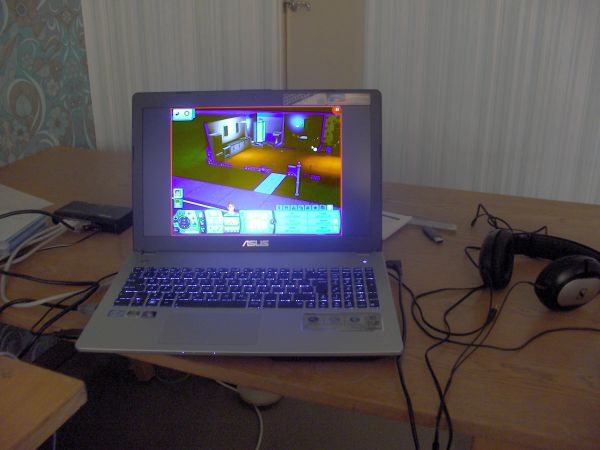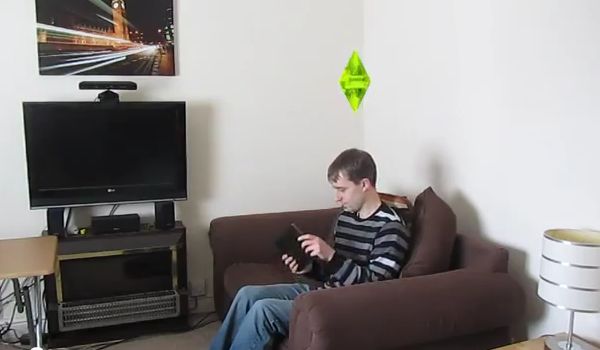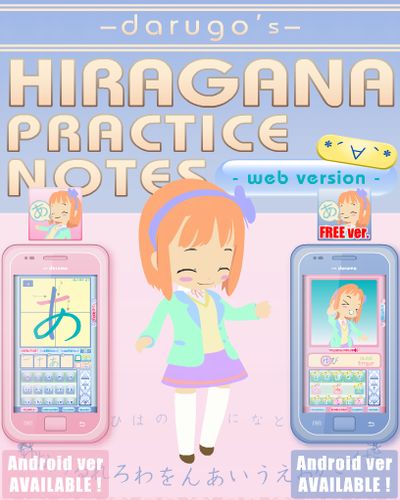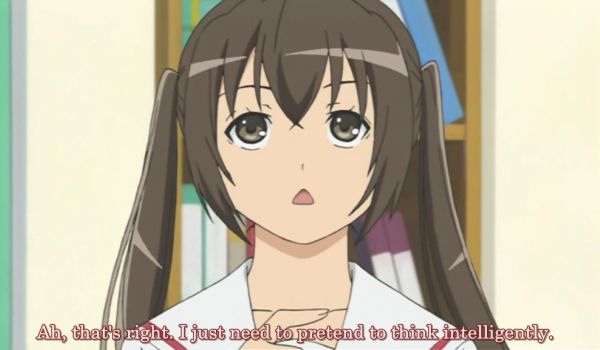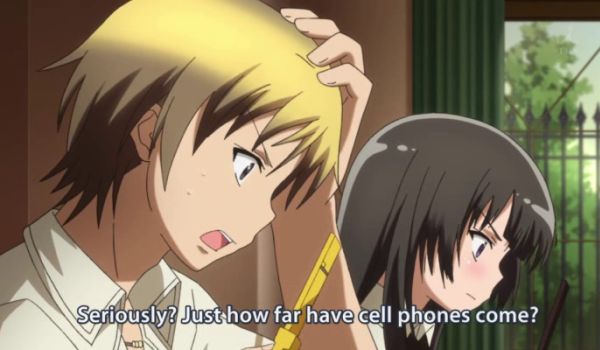
Seriously? Just how far have cell phones come? A lot further than in the 1970es. But then a lot of things have changed since then.
Economists are none too cheerful about the life of common workers in the USA. The plight of the low-paid wage earners is well known, I think – their work has increasingly been outsourced to other countries, one way or another; and if not, then taken over by new immigrants, some of them illegal. As more and more advanced industry moves to China and elsewhere, the hungry ghost of unemployment nibbles at the toes of even those who used to feel safe.
But salaried workers are not quite as lucky as one may think, either. Adjusted for inflation, they earn approximately the same as two decades ago, but they work longer and harder for it. The standard of living was slowly rising, but largely based on loans and especially mortgage. In the two decades before that, the family income was rising for another reason: More women entered into paid work, whereas in the past many married women had stayed at home. This is rare now, and that process is pretty much complete a couple decades ago. Where a man could earn enough to buy a house and feed a family, husband and wife now both work overtime to keep the house – if there is work to find.
Well, it is not always and in all places that bad, but this is the overall trend. While the richest are getting richer, the lower middle class (and not very low either) has to run just to stay in place. Or so it seems, when measured by the standard tools of the economists.
They forgot the technology.
***
I don’t mean the technology at the workplaces. Economists are acutely aware of that. How much productivity has increased because of email, how much is lost to Facebook, stuff like that. This is not what I am talking about.
40 years ago, even if you were filthy rich, you were unlikely to have several million tracks of music. And even if you had such an obsession, you definitely did not bring millions of songs with you in your car. But today, a teenager on the school bus can choose between these millions of tracks while listening to Spotify on his smartphone.
40 years ago, you could not carry hundreds of books with you wherever you went either. And you certainly could not decide that a minute from now you would have bought an uncommon book and begun reading it. Buying a new book required going to the bookstore and pick one from those that were available. If there were other books, you did not know about them, unless you got the help of a librarian or some other scholar. In the case of books that were not broadly popular, it could easily take weeks to procure them. Now, you can do it while waiting for the elevator.
40 years ago, you could not chat with friends on another continent, or call them almost for free, or hang out with them on video chat. International calls were hideously expensive, and of course you had to call at a time when the person was in the house so they could hear the telephone.
The Internet and mobile phones may be the most obvious of the new technologies, but there are many others. I doubt there were pulse watches at all, even for the rich (although we did have digital watches in the 70es, if memory serves). Incandescent light bulbs were the only way to light the house, even during a heat wave, emitting 90% heat and 10% light instead of the opposite.
Medicine has quietly made a lot of progress. This is a good thing, of course: Back then, heart infarcts were common, arrived suddenly, and usually led to death. These days it is more common than not to spot the warning signs long before an actual lethal infarct, and treat the condition with medication or, if worst comes to worst, surgery. Diabetes can be diagnosed years before it shows symptoms. Several types of cancers can now be treated that could not in the 70es. The downside is that health care costs have exploded. There is some hand-wringing over this, but the main reason for the huge cost is that we can treat rare illnesses that we used to just give up on. It is generally agreed that being rich and dead is not the best possible outcome. Better to be poorer but still alive!
Cars are safer too. Back in my childhood, 40 years ago, safety belts were still fairly new and highly optional. Now, there is a wide range of security measures to prevent collisions and save your life should a collision happen anyway. And by the way, modern cars pollute far less and also use less fuel.
I am sure I could continue this way, but the point is: You may be working more (and maybe you even are not allowed to read this at work) for the same pay, but on the other hand you can perform miracles that were science fiction a generation ago. That is a cause for celebration, surely! Please take a moment to appreciate how lucky we are to be born in the Age of Wonders.
